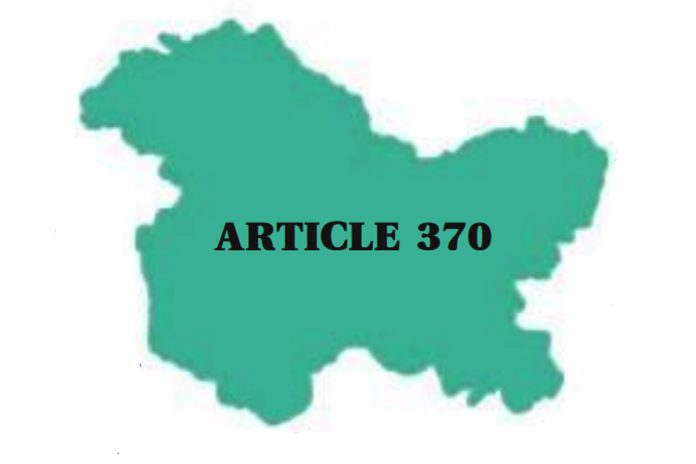The Constitution Bench of the Supreme Court will deliver its verdict in a batch of petitions which challenge he 2019 move by the Central government to revoke Article 370 which conferred special status on the erstwhile State of Jammu and Kashmir.
The Supreme Court on September 5, reserved its verdict on petitions challenging abrogation of Article 370 after hearing it for 16 long days.
The petitioners had also challenged the J&K Reorganisation Act, which bifurcated the erstwhile state into two Union Territories – Jammu & Kashmir and Ladakh.
The Constitution Bench of Chief Justice of India D.Y. Chandrachud, Justice Sanjay Kishan Kaul, Justice Sanjiv Khanna, Justice B.R. Gavai and Justice Surya Kant heard the matter for 16 days, starting on August 2 and concluding on September 5, during which time, it witnessed extensive arguments and discussions by both the parties.
The landmark case had remained dormant for over three years, with its last listing dating back to March 2020.
The Counsels appearing for the petitioners argued for the first nine days and stressed on the unique nature of Jammu and Kashmir’s relationship with India, which got embodied in the Indian constitutional setup, highlighting that the Maharaja of J&K did not give up the internal sovereignty to the Dominion of India.
They contended that while the power to make laws relating to foreign affairs, communication, and defence laid with the Union as per the Instrument of Accession (IoA), the internal sovereignty of J&K, which provided it with powers to legislate on all other matters, remained with the Maharaja.
The petitioners argued that Article 370 had assumed permanence and was no longer a ‘temporary’ provision post the dissolution of the J&K Constituent Assembly in 1957. They further said that the Indian Parliament, under the current constitutional framework, could not convert itself into a Constituent Assembly.
They termed imposing of the President’s Rule in a State as the ‘misuse’ of Article 356, pointing out that the purpose of Article 356 was to restore state machinery and not destroy it. However, the President’s Rule in J&K was imposed to destroy the state legislature, they alleged.
As per the petitioners, the President’s Rule under Article 356 was in its nature ‘temporary’ and hence, permanent actions could not be taken under it. They further argued that the amendment of Article 370 through Article 367 was invalid.
They pointed out that while Article 3 of the Constitution granted the Central government power to alter the boundaries of states and even create smaller states through bifurcation, it had never before been used to convert an entire state into a Union Territory (UT).
The petitioners further mentioned the negative impact on the constitutional structure of turning J&K into a UT.
The Counsels appearing for the Union Government and other respondents argued that the abrogation of Article 370 resolved the ‘psychological duality’ of the people of J&K. They claimed that before the abrogation, discrimination existed against the people of J&K as the Indian Constitution was not fully applied to the state prior to 2019.
As per the respondents, the Constitution makers foresaw Article 370 as a ‘temporary’ provision and wanted it ‘to die’.
They challenged the assertion of an exclusive special status for J&K on the grounds that during the late 1930s, a multitude of princely states were in the process of drafting their own constitutions. The execution of a merger agreement was not necessary to become a part of the Indian nation. Further, internal sovereignty could not be confused with sovereignty, they added.
Appearing for the Central government, Solicitor General Tushar Mehta contended that J&K was only converted to a UT owing to it being a sensitive border state for a temporary time period and that its statehood would be restored.
It was also argued that if Article 367 was not modified, it would have the effect on Article 370 becoming a permanent feature of the Indian Constitution, as sans the Constituent Assembly, Article 370 could never be modified.
They asserted that the J&K Constitution was subservient and subordinate to the Indian Constitution and the J&K Constitution never had original constituent powers.
Even if the Constituent Assembly had been in existence, it would have a limited role to play in abrogation of Article 370 as its decision would be only ‘recommendatory’ in nature and the President could have taken any decision even if the Constituent Assembly did not agree to the same, argued the respondents.


